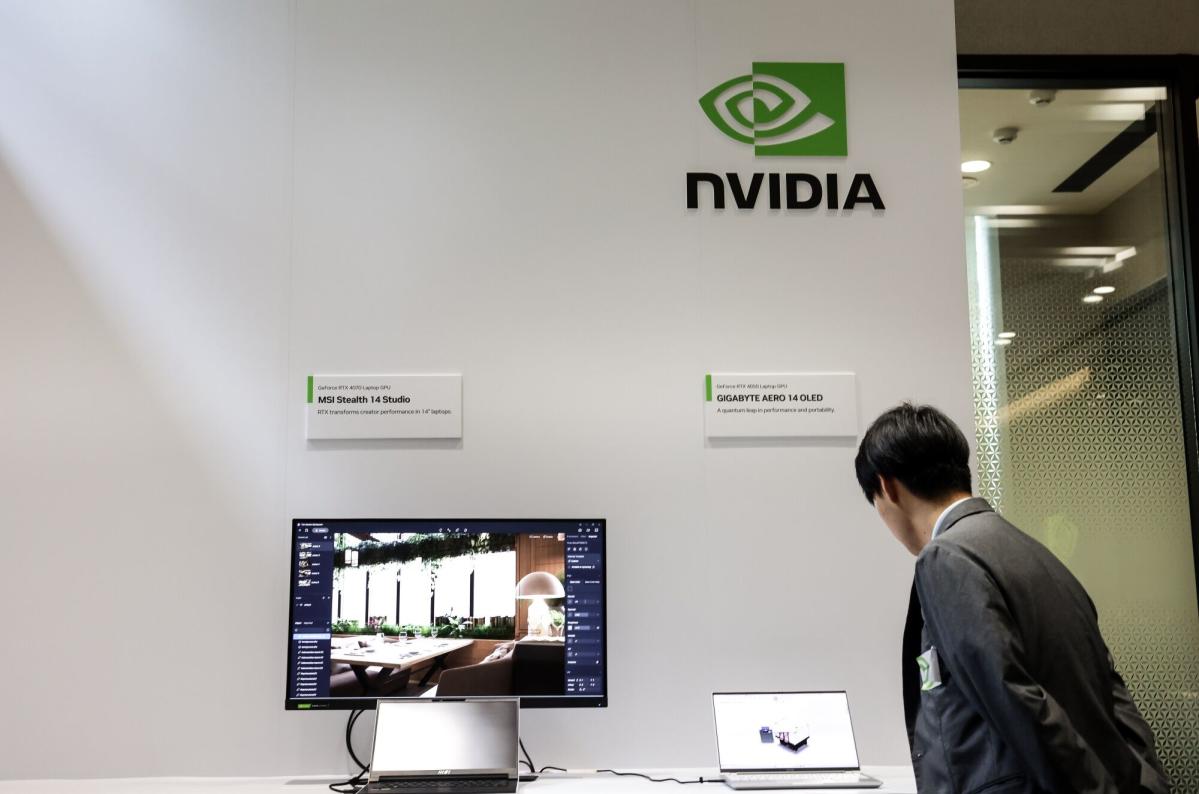China is placing orders for $5 billion worth of Nvidia chips, despite the fact that the chips have been deliberately limited in their capabilities for the Chinese market, indicating that the weakened processors are still more powerful than the alternatives available.
Nvidia's stock is surging as its stellar earnings alleviate concerns about supply constraints and the role of Chinese customers in driving demand.
Nvidia's dominance in the AI chip market and its reliance on a single manufacturer, TSMC, poses potential risks due to manufacturing disruptions and geopolitical tensions with Taiwan.
Nvidia stock is expected to more than double over the next 12 months, with analysts predicting a potential price target of over $1,000, thanks to the company's strong performance driven by AI and a reasonable valuation. However, challenges such as export restrictions to China and emerging competition may pose obstacles for the company.
Chinese GPU developers are looking to fill the void in their domestic market created by US restrictions on AI and HPC exports to China, with companies like ILuvatar CoreX and Moore Threads collaborating with local cloud computing providers to run their LLM services and shift their focus from gaming hardware to the data center business.
The U.S. has expanded export restrictions of Nvidia artificial-intelligence chips beyond China to other regions, including some countries in the Middle East, citing national security concerns.
US companies are becoming increasingly hesitant to invest in China due to concerns over new anti-spying laws, competition from state-funded firms, and the country's economic challenges such as deflation and a property crisis.
Chinese companies have increased their presence in cutting-edge materials and electric vehicles, making it challenging for other countries to reduce their dependence on Chinese supply chains, despite protectionist measures.
Nvidia's processors could be used as a leverage for the US to impose its regulations on AI globally, according to Mustafa Suleyman, co-founder of DeepMind and Inflection AI. However, Washington is lagging behind Europe and China in terms of AI regulation.
China is planning a $41 billion fund to boost its semiconductor industry in response to US restrictions on exporting chips to the country.
China's Huawei Technologies' development of an advanced chip for its latest smartphone demonstrates the country's determination to fight back against U.S. sanctions, but the efforts are costly and may lead to tighter restrictions from Washington, according to analysts.
The US is seeking to understand the details of Huawei's chip technology, which has sparked Chinese nationalism and raised questions about the effectiveness of US restrictions on the country's tech sector.
The Biden administration's export ban is causing China's largest contract chipmaker, SMIC, to face restrictions on export sales, leading to concerns about the acceleration of the US-China tech war.
China's economic challenges and failed rebound post-Covid are causing U.S. investors and businesses to view Chinese exposure as a liability, leading to underperformance in companies with high China exposure and potential bans on foreign devices, signaling a potential decline in China's economic growth.
US companies with significant revenue exposure to China are at risk due to the country's struggling economy, characterized by high youth unemployment rates and recent property defaults, according to Bank of America.
Nvidia's record sales in AI chips have deterred investors from funding semiconductor start-ups, leading to an 80% decrease in US deals, as the cost of competing chips and the difficulty of breaking into the market have made them riskier investments.
China's struggling economy, including its deflation and property crisis, will have a significant impact on the US due to its high foreign investment exposure in China and the dependence of key exporting countries like Chile, Australia, and Peru on the Chinese market.
U.S. companies are losing confidence in China and some are limiting their investments due to tensions between the two countries and China's economic slowdown.
The U.S. Commerce Department is issuing final rules to prevent China and other countries from using semiconductor manufacturing subsidies, in order to protect American national security and clear the way for $39 billion in subsidies for semiconductor production.
